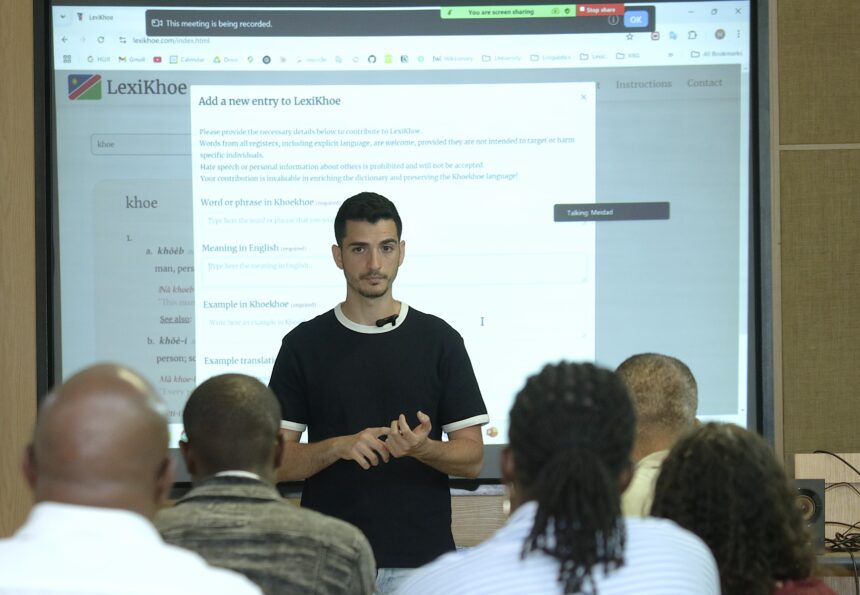Rudolf Gaiseb
The new digital khoekhoegowab dictionary, Lexikhoe, will revolutionise the use, accessibility, interactivity and preservation of the indigenous language.
The creator, Meidad Ovadia, is a linguistics student at the Hebrew University of Jerusalem, Israel.
He is a guest lecturer at the University of Namibia (Unam).
During a public lecture on Wednesday last week, Ovadia said the innovation is his master’s degree thesis project.
During the lecture, themed ‘Enhancing Accessibility and Language Preservation: Towards a Crowdsourced Digital Khoekhoe Dictionary’, he said the digital dictionary offers substantial benefits beyond the standard hard-copy dictionary.
“It is a crowd-source dictionary, which enables all users to contribute to the dictionary and add entries in Khoekhoe. I have built the dictionary so it will be accessible and easy to read. It is for students, researchers and everybody at large,” he noted.
The benefits include no space limitations, instant searchability, efficiency of access, crowdsourcing as well as improved data and regular updates.
The dictionary is accessible on lexikhoe.com free of charge.
Ovadia said the digital dictionary is significant, there is a scarcity of linguistic resources of Khoekhoe available online.
The most recent Khoekhoegowab dictionary was published in 2002.
The Wilfrid Haacke and Eliphas Eiseb Khoekhoegowab dictionary has an English-Khoekhoegowab index.
It is available only in printed edition, making it less accessible.
Unam School of Humanities, Society and Development associate dean Martha Akawa-Shifuka said this is a big opportunity, as the university is developing, expanding and accessing Khoekhoegowab resources in Namibia.
“We are very excited to be part of these new initiatives that also give a broader orientation for others to develop and expand the language further. We are excited to support and to be part of this initiative,” she noted.
She added: “We are bridging into an era where many young people do not even speak their mother tongues, a language that is part of your heritage. For me, language and food define your identity and who you are. Therefore, it is very sad if the young generation who are not speaking now – and by extension their children – will not be able to speak because you learn by listening. We are facing a sad possibility of our languages dying if they are not carried on further by the new generation”.
Unam Oshiwambo professor Petrus Mbenzi commended the initiative, saying it should be expanded to other Namibian languages.
“We need it for Oshiwambo, Otjiherero, Rukwangali and others because, with digital support, this is the way to go. There is no other chance. It will also make it accessible to as many people as you can. Many people are now using cell phones.
If you have such a digital dictionary, it’s quite helpful. We must move out of the world where we use printed dictionaries because they are sometimes not portable. So, this is user-friendly – it’s portable. You can use it from any corner of the country,” he said.
Photo: Heather Erdmann



